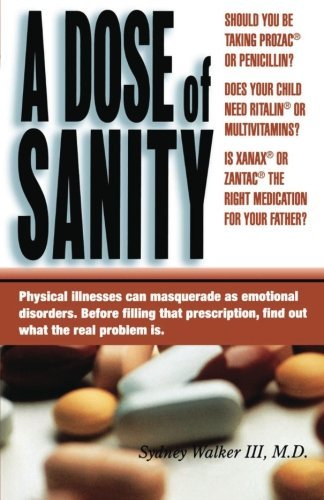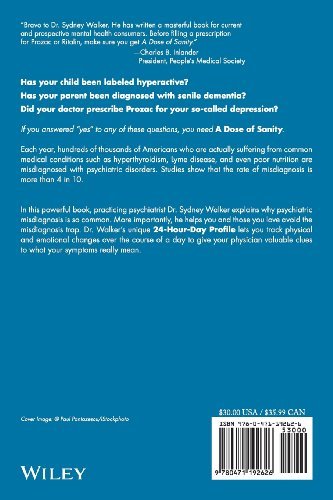I Believe People Misunderstand Mental Illness
I have been reading a book about using SPECT scans to show how the brain is affected by mental illness. I googled why it was not more widely used to diagnose mental disorders and I found multiple articles on why mental disorders are made up... I found one point that made sense, that prescriptions are over sold to benefit the drug companies and talk therapy is more expensive so insurance companies would rather give drugs. It does make me mad for the people suffering that look at this and think there is something wrong with them for feeling the way they do. One article said that there was no basis for chemical imbalances. I found another article talking about making nerve cells from patients with schizophrenia and those without and the nerve cells produced different chemicals under different circumstances. That supports a chemical problem. Biological or environmental. One article said there was no chemical imbalance as the cause. People say that there is a chemical cause to reduce the stigma. I ask then, if that is true, what is the cause? There is something different between people with and without depression, the brain functions differently. I haven't done enough research yet to be able to contradict what the article said for sure. For example, in studies with patients with PTSD the hippocampus had shrunk. The book talked about a therapy, EMDR, that could help treat PTSD and how it brought memories stored in the limbic system to the cortex so they could be processed with reason. It related it to REM sleep and memory processing. They said it was environmental. That can be true too. I read some things on epigenetics and how methalation affects DNA of offspring of individuals who experiences trauma. Events in life change how our brains are wired. Thought processes are like walking down certain paths. There is no grandma neuron. Neurons act in groups to function. The visual system starts out simple and then increases as all the little parts are integrated to form images. It's all perception of how the world is according to our brains. How do we see things. Different behavioral therapies can help treat mental illness by modifying certain thought patterns. Are those the ones that don't need medication? Different lifestyle changes can help manage physical illnesses too. Sometimes making medication unnecessary. Everything that happens in our bodies has some cause. Otherwise it wouldn't be able to happen. If they say that mental disorders are said to have a physical cause to reduce stigma, then what do they think causes them? How do they think people lacking who have them? They make it sound like medication is the only treatment. If so much emphasis is put on medication, then positive attitude is irreverent. A positive attitude helps. It doesn't cure. It helps in physical illnesses too. One article said that medications have no more effect than praying or magical crystals, the placebo effect. When they do these tests, they compare it to a placebo group and the results have to differ on the positive side being the drug group. That makes that point invalid. The point also exists how are the studies reported? How man of them are done and reported to get the results they want? How are the stats ran? I've heard people say that they run multiple drug trials until one works and only publish that one. You are supposed to accept the results in stats at whatever p-value you set. Say .05, the results have a 5% change of occurring by chance. The lower the better. Multiple tests causes problems. You run something enough, you can get the results you want. I want to find evidence from different sources, research papers, and try to support opinions I read with evidence. I want to start with some of the stuff I read today, because I don't have as concrete evidence to contradict them saying it doesn't exist. I don't know what tests scientists have done to show chemical imbalances. When people say medications don't work, are they rooted in evidence, fear of change, skepticism, or something else? I know some of what has been done with brain scans and that shows differences. I've heard about biomarkers as a source to diagnose mental disorders. One for PTSD was some years ago and vague in the presentation, because it was government research. I want to learn more about it. I want to be able to cite things and papers and studies. I want to be able to help people. When people are young and suffer trauma, it does affect their thought processes and how their brains work. What is wrong if people have outlandish beliefs? Why be mean? To what extent does everybody fit into a..... Well I'm not sure. I saw one book title that said the loss of sadness. Some symptoms of mental disorders have to be acceptable. What is the line, between part of life and a problem?
I'm not sure if I made any sense or not or where I started... Basically my thoughts are scattered from here to there. What do you think?
I'm not sure if I made any sense or not or where I started... Basically my thoughts are scattered from here to there. What do you think?







